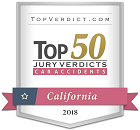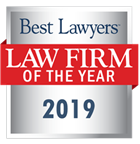Mar 26, 2015
The Veen Firm proudly partners with the San Francisco Building and Construction Trades Council to provide legal help for Bay Area workers in the trades.Many complicated legal issues affect workers in our community. The Veen Firm is passionate about providing the education and resources needed to protect Bay Area workers.Real people submit questions, and the attorneys at The Veen Firm respond directly. This month’s expertise is provided by Elinor Leary.


















I was injured at a nonprofit community center while doing weekend community service to work off a speeding ticket. I was clearing brush when the machine jammed and seriously injured me. I am now unable to work at my regular job, and I have no income. What can I do?
You may be entitled to receive Worker’s Compensation benefits, even though you were not injured at your regular job. The question comes down to who your “employer” was over the weekend that you were doing community service work. Under the Labor Code, the nonprofit organization is exempt from being considered an employer, so you will not be entitled to collect Worker’s Compensation benefits from them. However, the County where you were going to be sentenced for your speeding ticket would likely be considered your “employer” even though you didn’t sign a contract and were not expecting to be paid a wage for your community service.You may also have a remedy in civil court based on a defective product claim. You should immediately contact an experienced civil litigator who has experience dealing with cases that involve workplace injuries. If you do have a remedy against the manufacturer of the machine that malfunctioned, you will need an attorney who knows how to carefully draft a complaint on your behalf. If the complaint is not carefully drafted, you may receive an unfavorable ruling from the civil court that may prevent you from pursuing your case in civil court. This would limit you to only the benefits you would receive in the Worker’s Compensation system, reducing the compensation you might otherwise be eligible to receive.–Elinor Leary, Attorney; The Veen Firm, San Francisco, CA